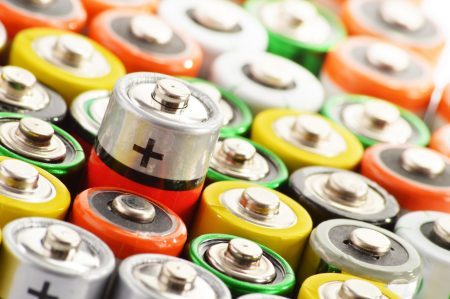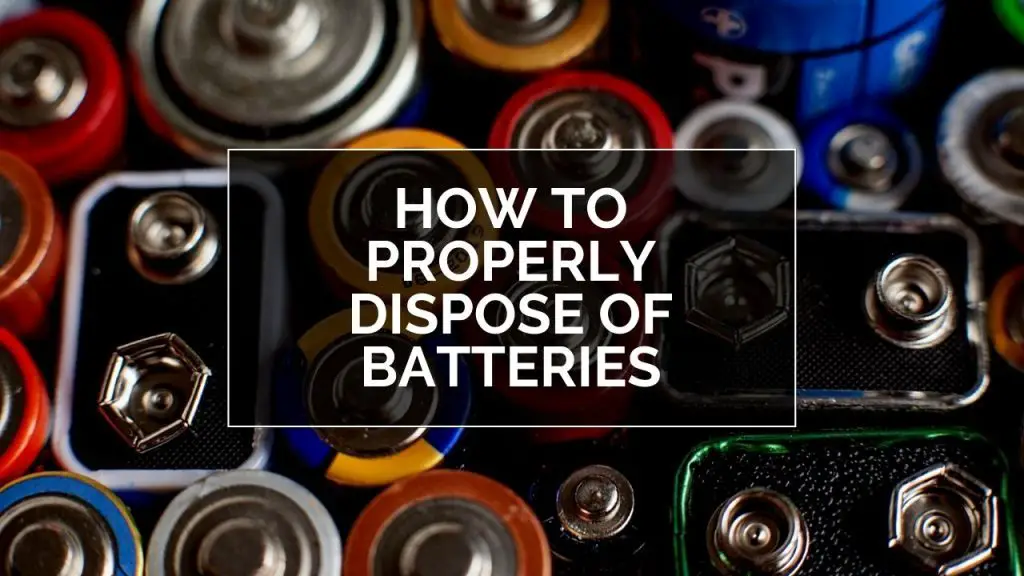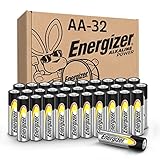Properly disposing of batteries is essential for protecting the environment and promoting sustainable practices. Here are some tips for disposing of batteries responsibly:
- Check if your local community has a battery recycling program. Many cities and towns offer free battery recycling services at designated drop-off locations. This is often the most environmentally-friendly option for disposing of batteries.
- Consider recycling rechargeable batteries. Many retailers and manufacturers have programs in place for recycling rechargeable batteries. Check with the manufacturer or retailer to see if they offer a recycling program for your type of battery.
- Dispose of household batteries properly. Household batteries, such as AA, AAA, C, and D, should not be thrown in the trash. Instead, they should be taken to a designated drop-off location for proper disposal. Check with your local waste management agency to find out where to dispose of household batteries.
- Avoid disposing of batteries in public places. Throwing batteries in public places can be dangerous, as children or animals can accidentally ingest them. In some areas, it is illegal to dispose of batteries this way.
Where to Dispose of Batteries
Proper disposal of batteries is vital for protecting the environment and promoting sustainable practices. Here are some options for disposing of batteries:
- Check if your local community has a battery recycling program. Many cities and towns offer free battery recycling services at designated drop-off locations. This is often the most environmentally-friendly option for disposing of batteries.
- Consider recycling rechargeable batteries. Many retailers and manufacturers have programs in place for recycling rechargeable batteries. Check with the manufacturer or retailer to see if they offer a recycling program for your type of battery.
- Dispose of household batteries properly. Household batteries, such as AA, AAA, C, and D, should not be thrown in the trash. Instead, they should be taken to a designated drop-off location for proper disposal. Check with your local waste management agency to find out where to dispose of household batteries.
- Find a hazardous waste collection site. Some cities and towns have hazardous waste collection sites where you can dispose of batteries and another household hazardous waste. Contact your local waste management agency for information on where to find a hazardous waste collection site near you.
- Mail in your batteries for recycling. Some companies offer mail-in battery recycling programs. This can be a convenient option, but remember that you may have to pay a fee to participate.
What hazardous chemicals are in batteries?
Batteries contain one or more of the following: cadmium, lead, zinc, manganese, nickel, silver, mercury, lithium, and acids. When you improperly dispose of batteries, these chemicals escape the battery’s casing and can contaminate soil and groundwater.
Need more batteries? These are the most popular batteries on Amazon.
Disposing of Rechargeable Batteries
Rechargeable batteries can be recycled, which is good for the environment and helps to conserve natural resources. Here are some tips for properly disposing of rechargeable batteries:
- Check with the manufacturer or retailer to see if they offer a recycling program for your type of battery. Many companies have programs in place for recycling rechargeable batteries.
- Find a local battery recycling center. Many cities and towns have battery recycling centers where you can drop off rechargeable batteries for proper disposal. Contact your local waste management agency to find out where to go.
- Use a mail-in battery recycling program. Some companies offer mail-in battery recycling programs. This can be a convenient option, but remember that you may have to pay a fee to participate.
- Dispose of rechargeable batteries at a hazardous waste collection site. Some cities and towns have hazardous waste collection sites where you can dispose of batteries and another household hazardous waste. Contact your local waste management agency to find out where to find a hazardous waste collection site near you.
What types of hazards are in car batteries?
A typical car battery contains 18 pounds of lead and 1 pound of sulfuric acid.
Lead-Acid Batteries
Lead-acid batteries are a type of rechargeable battery that is commonly used in vehicles, such as cars, boats, and motorcycles. They are also used in some backup power systems and emergency lighting systems. Lead-acid batteries are made of lead plates and sulfuric acid, which can be hazardous if not handled properly.
3.1 billion batteries are sold in America every year.
Nickel-Cadmium Batteries
Nickel-cadmium (NiCd) batteries are rechargeable batteries commonly used in small electronic devices, such as cordless power tools and portable radios. They contain toxic heavy metals, including cadmium and nickel, which can harm the environment if not disposed of properly.
Nickel-Metal Hydride Batteries
Nickel-metal hydride (NiMH) batteries are rechargeable batteries commonly used in electronic devices, such as cell phones, laptops, and portable power banks. NiMH batteries are made up of a combination of nickel and metal hydride, which can be hazardous if not handled properly.
Proper disposal of NiMH batteries is essential to avoid environmental contamination and potential health hazards.
Lithium-ion Batteries
Lithium-ion batteries are rechargeable batteries commonly used in electronic devices, such as cell phones, laptops, and portable power banks. They are also used in some electric vehicles. Lithium-ion batteries are made of lithium and other materials, which can be hazardous if not handled properly.
It is essential to properly dispose of lithium-ion batteries to avoid environmental contamination and potential health hazards.
Lithium-Polymer Batteries
Lithium-polymer batteries are rechargeable batteries commonly used in electronic devices, such as cell phones, laptops, and portable power banks. They are also used in some electric vehicles. Lithium-polymer batteries are made of lithium and other materials, which can be hazardous if not handled properly.
Environmental Impact of Rechargeable Batteries
Rechargeable batteries can have a positive environmental impact compared to disposable batteries, as they can be used multiple times before being recycled or disposed of. However, rechargeable batteries can harm the environment if not appropriately handled.
Here are a few ways that rechargeable batteries can impact the environment:
- Raw material extraction: The production of rechargeable batteries requires the extraction of raw materials, such as lithium and nickel, which can negatively impact the environment and local communities.
- Energy use: The production and transportation of rechargeable batteries require energy, which can contribute to greenhouse gas emissions.
- Hazardous waste: Rechargeable batteries contain hazardous materials, such as heavy metals, which can be harmful if not disposed of properly. Improper disposal of rechargeable batteries can lead to environmental contamination and potential health hazards.
Recycling and using them energy-efficiently is essential to minimize the environmental impact of rechargeable batteries. By following best practices for battery disposal, you can help reduce waste and promote sustainable practices.
Proper Disposal of Non-rechargeable Batteries
Non-rechargeable batteries, also known as disposable batteries, are everyday household items that can be harmful if not disposed of properly. Here are some tips for disposing of non-rechargeable batteries:
- Check with your local waste management agency to see if they have specific guidelines for disposing of non-rechargeable batteries. Some communities have specific regulations for the disposal of these batteries.
- Find a local battery recycling center. Some cities and towns have battery recycling centers where you can drop off non-rechargeable batteries for proper disposal. Contact your local waste management agency to find out where to go.
- Use a mail-in battery recycling program. Some companies offer mail-in battery recycling programs for non-rechargeable batteries. This can be a convenient option, but remember that you may have to pay a fee to participate.
- Dispose of non-rechargeable batteries at a hazardous waste collection site. Some cities and towns have hazardous waste collection sites where you can dispose of batteries and another household hazardous waste. Contact your local waste management agency to find out where to find a hazardous waste collection site near you.
Disposing non-rechargeable batteries can help protect the environment and prevent potential health hazards.

Alkaline Batteries
Alkaline batteries are non-rechargeable batteries commonly used in household items, such as smoke detectors, remote controls, and flashlights. Alkaline batteries combine zinc and manganese dioxide, which can be hazardous if not handled properly.
Zinc Carbon Batteries
Zinc-carbon batteries are non-rechargeable batteries commonly used in household items, such as clocks, radios, and toys. Zinc-carbon batteries are made of zinc and manganese dioxide, which can be hazardous if not handled properly.
Battery Manufacturers with Recycling Programs
Many battery manufacturers offer recycling programs for their products. Here are a few examples:
- Energizer: Energizer has a rechargeable battery recycling program for their products. You can find a list of drop-off locations on their website.
- Duracell: Duracell has a partnership with Call2Recycle, a non-profit organization that provides battery recycling services. You can find a list of drop-off locations on the Call2Recycle website.
- Panasonic: Panasonic has a battery recycling program for its rechargeable batteries. You can find a list of drop-off locations on their website.
- Rayovac: Rayovac has a partnership with Call2Recycle for battery recycling services. You can find a list of drop-off locations on the Call2Recycle website.
- Sanyo: Sanyo has a battery recycling program for their rechargeable batteries. You can find a list of drop-off locations on their website.
Participating in these programs can help reduce waste and promote sustainable practices. It is always a good idea to check with the manufacturer or retailer to see if they have a recycling program for their rechargeable batteries.
Preparing Your Batteries for Transportation or Home Collection
If you need to transport your batteries or have them collected from your home for recycling, there are a few steps you should follow to ensure their safe handling and disposal:
- Check with your local waste management agency to see if they have specific guidelines for preparing batteries for transportation or home collection.
- If transporting the batteries, ensure they are upright to prevent leaks or spills. You can use a plastic container or bag to hold the batteries or tape to secure the ends of the batteries to avoid contact with other metal objects.
- If you are having the batteries collected from your home, make sure they are adequately packaged and labeled as hazardous waste. You can use a special hazardous waste bag or container or tape to secure the ends of the batteries to prevent contact with other metal objects.
- Follow all local, state, and federal regulations for transporting or disposing batteries. Some states have specific rules regarding the transportation of batteries, so it is essential to check with your local waste management agency to see what is allowed in your area.
Conclusion
It’s important to properly dispose of batteries to protect the environment and prevent potential health hazards. There are various options for disposing of batteries, including recycling programs, battery recycling centers, and hazardous waste collection sites.
When disposing of batteries, following the guidelines from your local waste management agency and all local, state, and federal regulations is essential. By taking these steps, you can help reduce waste and promote sustainable practices.



